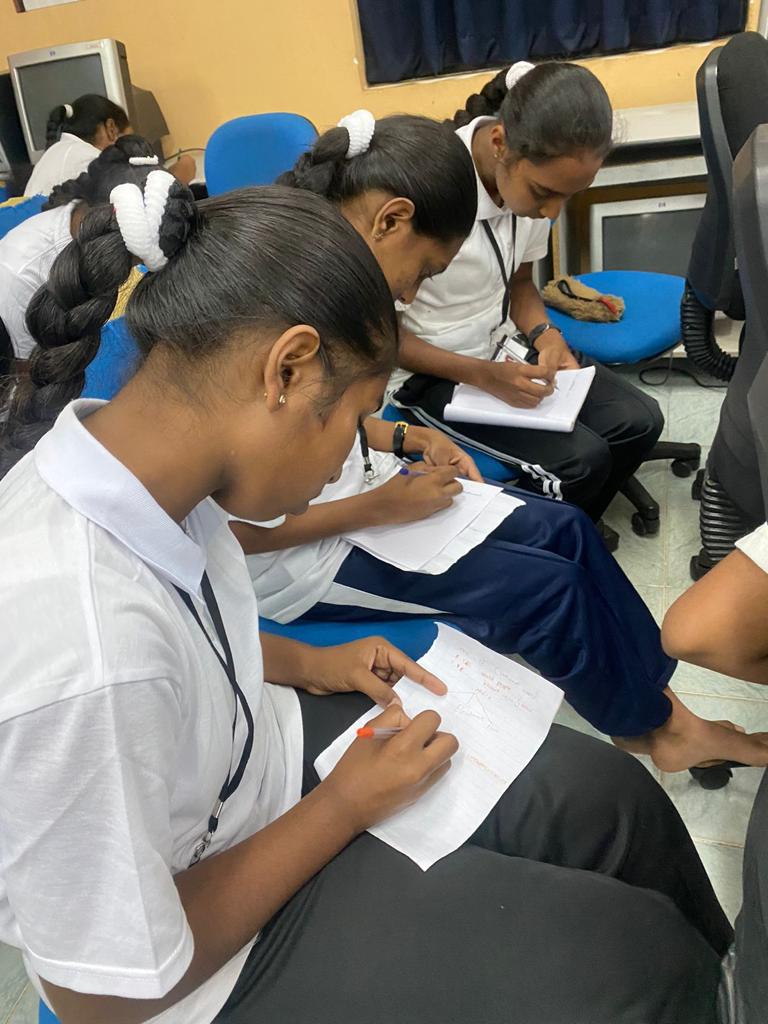September 27, 2023
Badulla, Sri Lanka – In a rapidly evolving digital age where technology has permeated every aspect of life, 35 students affiliated with the school media clubs at Badulla Tamil Girls’ Maha-Vidyalaya recently convened for a one-day workshop aimed at tackling the issue of digital addiction. The workshop, organized by the International Foundation for Digital Child (IFDC), also explored insights into the digital habits of young children and the challenges they face in an increasingly tech-savvy world.
The workshop, attended by both students and educators, was initiated at the invitation of the school’s principal and four teachers. Conducted by Mohammed Fairooz, the chief editor of the Vidivelli weekly newspaper and a digital addiction trainer at IFDC, the event shed light on some intriguing trends in the students’ digital consumption habits.
One striking revelation from the workshop was that none of the participants owned a personal mobile phone or digital device provided by their families. However, it came as a surprise that almost all of them, with the exception of just two, actively engaged with the popular social media platform TikTok. Additionally, the majority of students expressed their fondness for platforms like YouTube and WhatsApp, which they primarily used for entertainment purposes. Nearly 30 students admitted to active WhatsApp usage, and most revealed they enjoyed checking the status updates of their peers, engaging in a friendly competition to maintain a vibrant online presence.
Furthermore, the students showed a particular affinity for short video content on various topics, finding them highly entertaining.
As part of the workshop, students completed a questionnaire designed by the trainer to assess their device usage, both for educational and personal purposes. The findings indicated that, on average, students spent approximately three hours daily on their mobile phones or digital devices.
IFDC introduced an interactive tool called the Digital Addiction Assessment Toolkit, which allows students to self-evaluate their level of addiction to digital devices. Many students acknowledged that they felt on the verge of addiction but believed they still had some control over their usage. It was also revealed that most students had access to smartphones and other digital devices at home.
Mrs. R. Bavani, the school’s principal, emphasized the importance of not isolating mobile phones and devices from students in today’s internet-centric era. Instead, she stressed the need for mentorship and training to equip children with the skills to manage their digital lives successfully. She further affirmed that similar training programs were crucial for students in other schools as well.
The workshop at Badulla Tamil Girls’ Maha-Vidyalaya highlighted the intricate relationship between young students and their digital devices, shedding light on the pressing need for balanced and informed digital engagement in the modern world.
